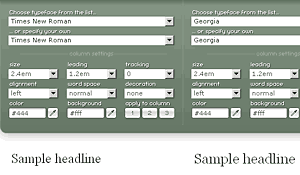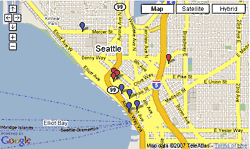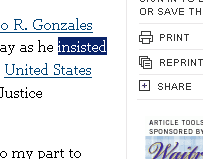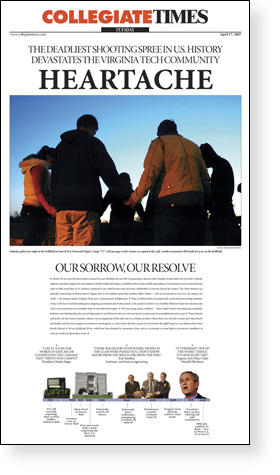See below for an update from the Online News Association regarding this year’s ONA conference in Toronto. See you all there! And don’t forget your passport:
Online News Association Annual Meeting in Toronto, October 17 – 19
You can now register online for the Oct. 17-19 conference and awards banquet. Reserve your hotel room now to get the ONA discount. The early bird fee for ONA members to attend the conference is $399. Early bird registration lasts until Sept. 16. After September 16, the fee will be $449 for ONA members. Fees at all times for non-ONA members are $549.
2007 ONA Conference and Awards Banquet
Oct. 17-19, 2007
Sheraton Centre, Toronto, Ontario
The Sheraton Centre, Toronto, is offering those wishing to attend the conference a rate of $191 ($229 CAD) a night. This offer is only in effect until Sept. 16. After that regular rates are in effect, which vary from room to room and night to night. You can register here at the Sheraton Centre Toronto or call (416) 361-1000. If you call, please tell the registration desk you are with the ONA conference in order to get the special rate.
**A passport is required for US citizens traveling by air to Canada.
See the conference Web site for more details. And if you have ideas or suggestions for workshops, send an e-mail over to conference chair Ju-Don Marshall Roberts at Ju-Don.Roberts AT washingtonpost.com
 Typetester is a wonderful little online tool that lets you quickly compare just about every aspect of type that can be altered using CSS.
Typetester is a wonderful little online tool that lets you quickly compare just about every aspect of type that can be altered using CSS. The folks over at Google Maps have just written up
The folks over at Google Maps have just written up 
 Newsdesigner.com
Newsdesigner.com The Daily Telegraph in Sydney, Australia is taking heat from U.S. readers for publishing the photo of one of the victims of the Virginia Tech massacre and characterizing her
The Daily Telegraph in Sydney, Australia is taking heat from U.S. readers for publishing the photo of one of the victims of the Virginia Tech massacre and characterizing her 
 In what I believe to be a first, an editorial cartoonist who also creates Web animations from his work has won the coveted Pulitzer Prize for editorial cartooning. The Pulitzer entry from Walt Handelsman of Newsday includes his
In what I believe to be a first, an editorial cartoonist who also creates Web animations from his work has won the coveted Pulitzer Prize for editorial cartooning. The Pulitzer entry from Walt Handelsman of Newsday includes his